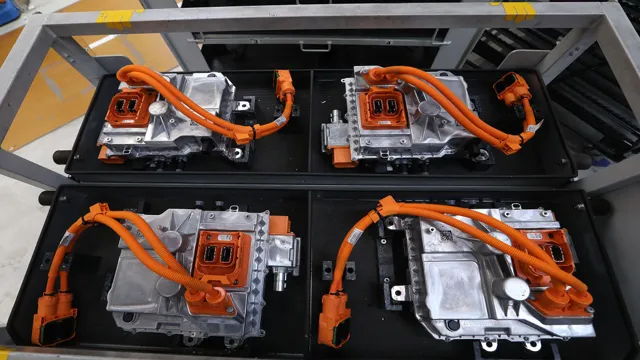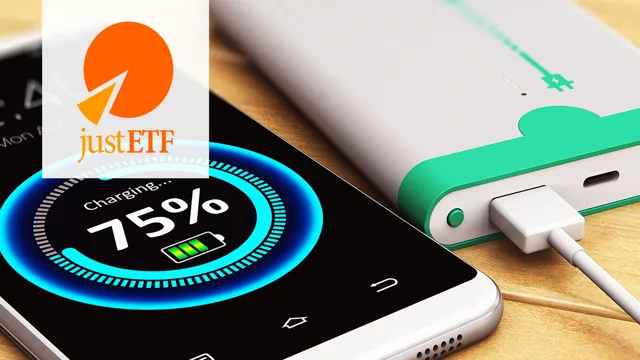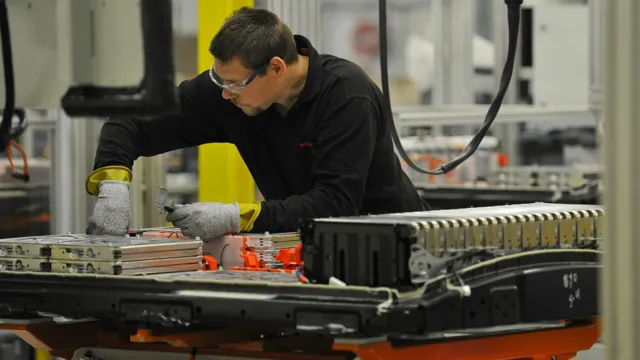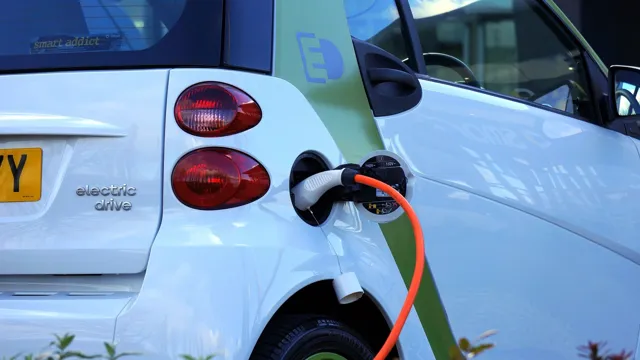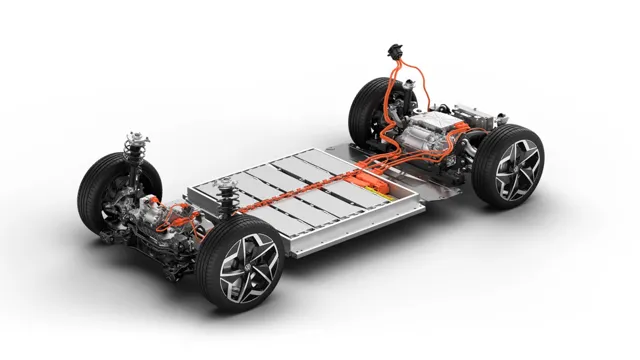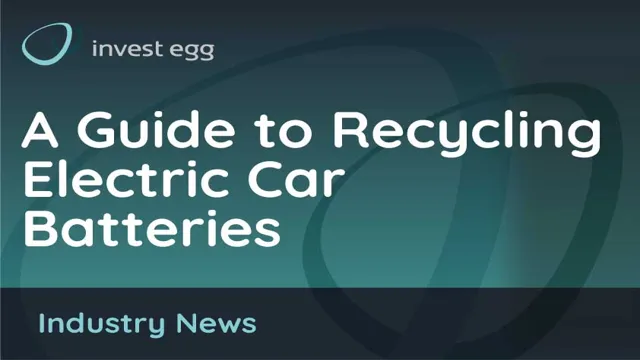Unleashing the Power: Exploring the Range of Charging Options for Electric Car Batteries
As the world shifts towards intelligent and eco-friendly alternatives, electric cars have emerged as a dominant force in the automobile industry. With zero-emission and low maintenance attributes, electric cars are pushing the boundaries of traditional gas-powered cars. However, with new advancements come new challenges, and one of the biggest challenges for electric car owners is charging their batteries.
The good news is that there are several charging options available to electric car owners that cater to all kinds of driving needs and situations. In this blog, we’ll take a closer look at the different electric car batteries charging options and help you pick the one that suits your lifestyle the best.
Charging Options Overview
Electric cars are becoming increasingly popular, and with their rise in popularity comes more interest in electric car batteries charging options. These options include Level 1, Level 2, and DC fast charging. Level 1 charging uses a standard household outlet and is the slowest option, typically taking up to 12 hours for a full charge.
Level 2 charging stations offer a faster charging option, taking around 4-6 hours for a full charge. Finally, DC fast charging is the quickest option, taking only 30-45 minutes for a full charge. While all options provide a functional level of charging, choosing the right option for you depends on your daily driving habits, your schedule, and your budget.
It’s also essential to note that some electric cars may not be compatible with all charging options, so it’s vital to research which chargers work best for your specific make and model. Overall, as electric cars continue to gain popularity, it’s essential to understand the various charging options available to ensure you can keep your car charged and ready to hit the road.
Level 1 Charging
Level 1 Charging is the simplest and most commonly used way to charge an electric vehicle (EV). It involves connecting the car to a standard household electrical outlet (120V) using the charging cord provided by the EV manufacturer. While it might take a bit longer to completely charge the car compared to other charging options, it is the most convenient and accessible charging method for most drivers.
Level 1 charging typically provides around 2-5 miles of range per hour of charging, making it best suited for drivers with low daily mileage requirements or for overnight charging. However, it is worth noting that Level 1 charging might not be the best option for individuals who require frequent long-distance driving as the charging time may not suffice to recharge the car to its optimum level. Overall, Level 1 charging provides a practical solution for most EV drivers, and it’s a great starting point for anyone newly introduced to the world of electric vehicles.
Level 2 Charging
Level 2 Charging is one of the most popular and convenient options for electric vehicle (EV) owners. Unlike Level 1 Charging, which uses a standard 120-volt outlet, Level 2 charging requires a 240-volt outlet. This option can charge an EV much faster than its Level 1 counterpart, typically taking only a few hours to charge a battery fully.
It’s the perfect choice for those who need to charge their EVs overnight or while at work. Level 2 Charging stations are available at public locations such as shopping centers, parking garages, and hotels. They can also be installed at home with the proper equipment.
With Level 2 Charging, EV owners can enjoy the flexibility and convenience that comes with a faster and more accessible charging option.
Charging at Home
When it comes to charging electric car batteries, one of the most convenient options is charging at home. Most electric cars come with a Level 1 charger that plugs into a standard household outlet and can fully charge the car overnight. However, for faster charging, you can install a Level 2 charger at home, which can fill up your car’s battery in a matter of hours.
This option requires a professional installation and an electrical upgrade, but it can provide a more consistent and faster charging experience than using a Level 1 charger. If you prefer to charge your car while you’re out and about, you can also look into public charging stations or using DC fast charging stations for even quicker charging times. Ultimately, the choice of charging options for your electric car depends on your lifestyle and needs, but charging at home is often the most accessible and convenient option.
Installing a Home Charger
Installing a home charger for your electric vehicle is a smart investment that can make your life easier and more convenient. With a home charger, you no longer have to stop at public charging stations or worry about running out of battery power. Installing a home charger is a relatively simple process, but it does require some planning and preparation.
First, you need to choose a charger that is compatible with your electric vehicle and that meets your charging needs. You will also need to find a qualified electrician to install the charger and ensure that your home’s electrical system can handle the additional load. Overall, installing a home charger is a smart way to enjoy the benefits of electric vehicle ownership and make your life easier and more convenient.
So why not consider making the investment today?
Charging Costs and Times
When it comes to charging an electric vehicle at home, it is essential to understand the costs and times involved. For most people, charging at home is the most convenient and cost-effective option as it eliminates the need to visit public charging stations. The cost of charging an EV at home varies depending on your electricity provider and tariff rates.
However, on average, it costs around 14p per kWh of electricity consumed. Charging times also depend on your EV’s battery capacity, the size of your charger, and the distance you intend to travel. Typically, a full charge takes 8-12 hours using a
7kW home charger, while a fast-charging 7kW charger can cut the charging time in half. Overall, charging your EV at home is not only convenient but also cost-effective, allowing you to save money while enjoying the benefits of clean, green energy.
Charging on the Go
Electric car batteries have come a long way in recent years. Many electric vehicle owners have found themselves in need of a quick charge while on the go. Luckily, there are several options available for charging your electric car battery while you’re out and about.
The most common type of charging station is a Level 2 charger, which can charge your battery up to 25 miles per hour. However, if you’re in a hurry, you may want to consider using a DC fast charger instead. These chargers can charge your battery up to 80% in just 20-30 minutes, making them perfect for those who need a quick charge while traveling.
Additionally, some electric car models come equipped with regenerative braking systems that can recharge the battery while you’re driving, further adding to your battery’s longevity. Overall, the key to keeping your electric car battery charged on the go is to plan ahead and be aware of your charging options.
Public Charging Stations
Public charging stations are becoming increasingly popular as more and more people are opting for electric vehicles. These stations provide a convenient option for drivers who need to charge their vehicles on the go. With the development of technology, public charging stations have become more accessible and efficient.
This means that even if you are traveling to a remote location or simply need a quick recharge, you can easily find a public charging station nearby. The process of charging your electric car at a public charging station is as simple as plugging your car into the charging unit and waiting for it to finish. This allows you to get back on the road without having to worry about running out of juice.
So, whether you are on a long road trip or just need a quick top-up, public charging stations are a great way to keep your electric car charged and ready to go.
Fast Charging Stations
If you’re an electric vehicle owner, you’re probably familiar with the struggle of finding fast charging stations on the go. Luckily, fast charging stations are becoming more prevalent, making it easier to keep your car charged during long trips. Fast charging stations use high-voltage levels to quickly charge your electric vehicle, allowing you to get back on the road in no time.
In fact, some fast charging stations can provide up to 80% charge in as little as 30 minutes! The convenience of fast charging stations is unmatched, and they are becoming increasingly commonplace at rest stops, shopping centers, and other public places. So next time you’re planning a road trip, make sure to look for fast charging stations along the way to ensure a stress-free and enjoyable journey.
Choosing the Right Option
When it comes to charging your electric car batteries, there are several options to choose from. One option is a Level 1 charger which uses a standard 120-volt household outlet and can take up to 20 hours to fully charge your battery. This is a great option if you have a lot of time to charge your car and don’t need it immediately.
Another option is a Level 2 charger which uses a 240-volt outlet and can charge your battery in as little as 3 hours. This is a better option if you need your car charged quickly and have access to a Level 2 charging station. Finally, there’s the DC Fast Charger which can charge your battery up to 80% in as little as 30 minutes.
This is the best option for long road trips and if you don’t have a lot of time to wait for your battery to charge. Ultimately, the right option for you depends on your lifestyle and how much time you’re willing to spend charging your car.
Conclusion
In the world of electric car charging, options are abundant, and the future looks bright. With innovative charging technologies constantly coming to the forefront, it’s an exciting time to be an electric car owner. Whether you’re at home, on the road, or at a public charging station, there are plenty of ways to keep your batteries humming.
From the convenience of wireless charging to the speed of high-power DC fast charging, the possibilities are endless. So, why settle for fossil fuels when you can go electric and enjoy a more sustainable, efficient and fun ride? With a variety of charging options available to you, the only thing you’ll have to worry about is finding enough time to enjoy the open road. Happy charging!”
FAQs
What types of electric car batteries are currently available on the market?
There are several types of electric car batteries, including Lithium-ion, Nickel-metal hydride, and Lead-acid batteries.
How long does it take to fully charge an electric car battery?
The time it takes to fully charge an electric car battery depends on the charging method and battery capacity. Fast charging stations can charge the battery up to 80% in less than an hour, while standard charging can take several hours.
Can you charge your electric car battery at home?
Yes, you can charge your electric car battery at home using a Level 1 or Level 2 charging station. These stations can be installed in your garage or outdoor parking area.
Are there any wireless charging options available for electric cars?
Yes, wireless charging options are available for electric cars. This technology uses inductive charging where the charging plate is installed on or under the ground and the car is parked over it, allowing for convenient and hassle-free charging.
